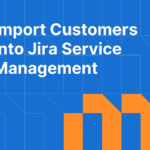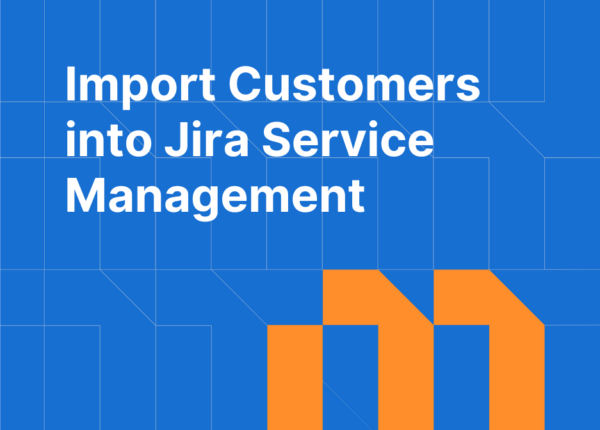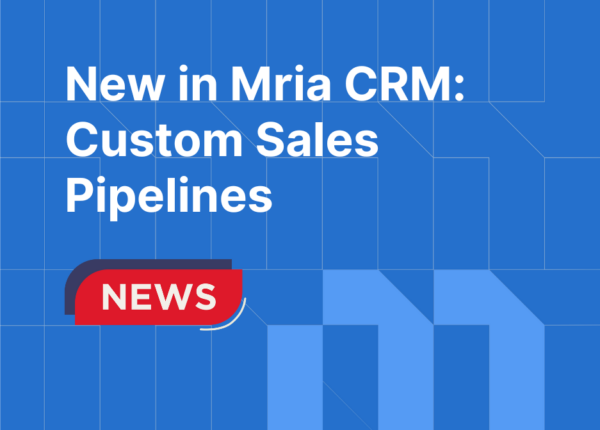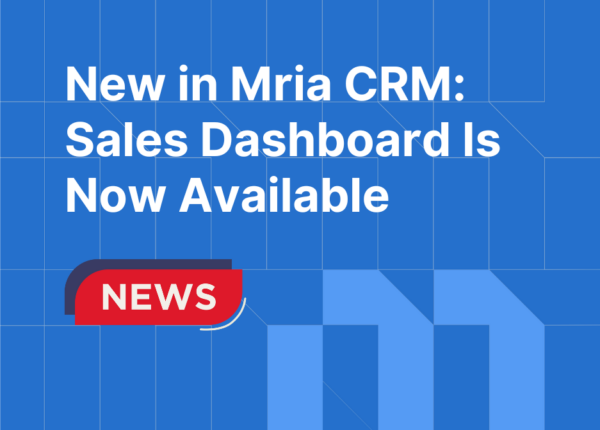Customer Relationship Management (CRM) is a strategy and technology used by businesses to manage their interactions with current and potential customers. At its core, CRM aims to improve business relationships, streamline processes, and enhance customer satisfaction. In this guide, we will explore what is CRM, its key components, benefits, and how it helps businesses achieve their goals.
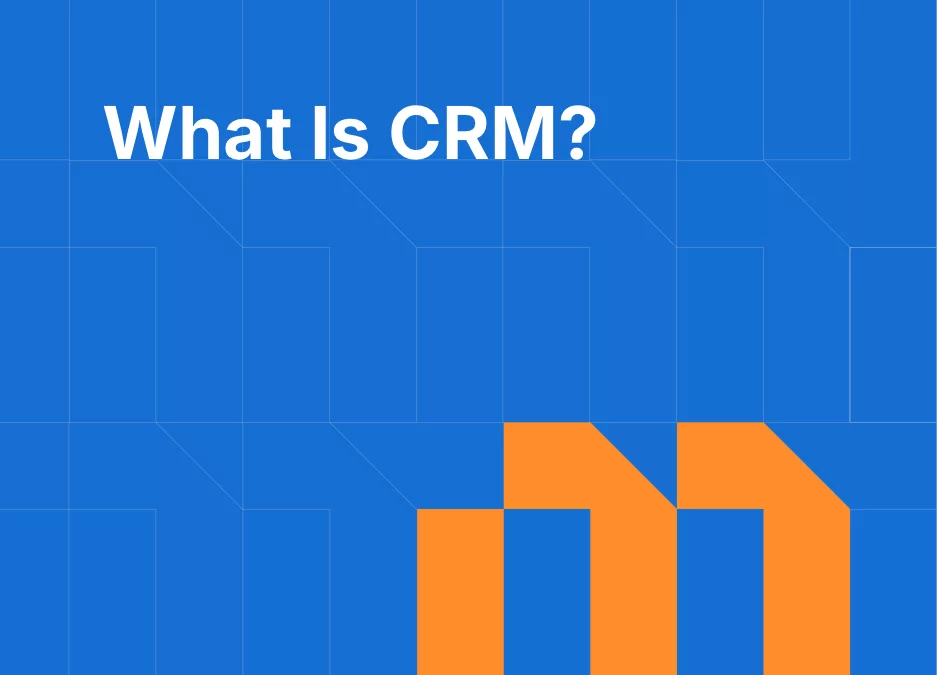
Table of Contents
Understanding CRM: Meaning and Definition
What Is CRM and Why Is It Important for Businesses?
CRM stands for Customer Relationship Management. It encompasses strategies, practices, and tools that businesses use to manage customer data, interactions, and relationships effectively. By centralizing customer information, CRM systems allow organizations to provide personalized experiences, track customer journeys, and identify opportunities for growth. Whether it’s managing sales pipelines, improving customer support, or driving marketing campaigns, CRM plays a significant role in fostering long-term customer loyalty and generating revenue.
CRM is particularly important in today’s competitive market, where customer expectations are higher than ever. Businesses that invest in CRM systems can better anticipate customer needs, address concerns promptly, and create memorable experiences. This leads to increased customer retention, higher satisfaction levels, and ultimately, greater profitability. A well-implemented CRM strategy is no longer optional; it’s a necessity for businesses aiming to thrive in a customer-centric world.
CRM Definition: The Core of Customer-Centric Strategies
The CRM definition can be summarized as a technology-driven approach to managing all aspects of customer interactions. A robust CRM system provides businesses with a 360-degree view of their customers, enabling teams to understand preferences, anticipate needs, and deliver tailored solutions. By combining data analytics with automation, CRM tools help organizations improve operational efficiency while enhancing customer satisfaction.
CRM is not limited to technology; it also involves a strategic mindset. It requires businesses to prioritize customer needs and align their processes to create value at every touchpoint. Whether it’s through personalized marketing messages, efficient service delivery, or proactive engagement, CRM ensures that customers feel valued and appreciated.

Key Features of CRM Systems
Centralized Customer Data Management for Enhanced Efficiency
CRM systems serve as a single repository for storing customer information, including contact details, purchase history, and communication preferences. This centralized database ensures that all team members have access to accurate and up-to-date information, facilitating better collaboration and decision-making. For example, a sales representative can view a customer’s previous purchases and tailor their pitch accordingly, while a support agent can quickly resolve an issue by referencing past interactions.
The ability to access customer data in real-time is a game-changer for businesses. It eliminates silos, reduces redundancy, and ensures that every interaction is informed and meaningful. By having a complete picture of the customer, businesses can provide a seamless and consistent experience across all channels.
Sales and Pipeline Management to Drive Revenue Growth
One of the key features of CRM is its ability to manage sales pipelines effectively. CRM tools provide visual dashboards to track leads, monitor deal progress, and identify bottlenecks. By automating repetitive tasks like follow-ups and reminders, sales teams can focus on closing deals and building relationships.
Pipeline management features also help sales managers forecast revenue and allocate resources more efficiently. By analyzing conversion rates and sales trends, businesses can identify areas for improvement and implement strategies to boost performance. With CRM, the sales process becomes more organized, predictable, and scalable.
Marketing Automation and Campaign Tracking for Better Results
CRM platforms often include marketing automation features that allow businesses to create, execute, and analyze campaigns. From email marketing to social media engagement, these tools provide insights into customer behavior and campaign performance, enabling teams to refine their strategies for better results.
Marketing automation not only saves time but also improves personalization. Businesses can segment their audience based on demographics, preferences, and behavior, ensuring that each message resonates with its recipient. Whether it’s sending a birthday discount or recommending a product based on past purchases, CRM makes marketing more targeted and effective.
Enhanced Customer Support for Improved Satisfaction
A CRM system ensures that support teams have access to customer interaction histories, allowing them to resolve issues quickly and efficiently. Features like ticket management, knowledge bases, and chat integrations streamline customer service processes and improve satisfaction.
For example, a CRM system can automatically assign support tickets to the appropriate agent based on their expertise or workload. It can also provide agents with suggested solutions based on similar past cases. These capabilities not only enhance efficiency but also ensure that customers receive timely and accurate assistance.
Types of CRM Systems
Operational CRM for Streamlined Processes
Operational CRM focuses on automating and improving business processes related to sales, marketing, and customer service. It streamlines workflows and provides tools to manage customer interactions across various channels. For instance, an operational CRM might automate lead scoring, assign tasks to team members, and track the progress of campaigns.
By reducing manual effort and ensuring consistency, operational CRM enables businesses to deliver a high-quality customer experience while maximizing efficiency. It’s particularly beneficial for organizations with complex workflows and large customer bases.
Analytical CRM for Data-Driven Decision-Making
Analytical CRM emphasizes data analysis to understand customer behavior and preferences. By leveraging insights from customer data, businesses can make informed decisions and develop strategies that align with customer needs. For example, an analytical CRM might identify trends in purchasing behavior, highlight opportunities for upselling, or predict customer churn.
The ability to analyze data at a granular level empowers businesses to stay ahead of the competition. It helps them anticipate market trends, tailor their offerings, and allocate resources effectively. Analytical CRM is a must-have for organizations looking to transform data into actionable insights.
Collaborative CRM for Improved Teamwork
Collaborative CRM aims to improve communication and collaboration among different departments. It ensures that all teams have access to the same customer data, fostering a unified approach to customer management. For example, a collaborative CRM might enable sales and marketing teams to share insights about customer preferences, ensuring that campaigns are aligned with sales goals.
By breaking down silos and encouraging cross-functional collaboration, collaborative CRM enhances efficiency and ensures that customers receive a consistent experience across touchpoints. It’s particularly valuable for organizations with dispersed teams or complex customer journeys.
Benefits of Using a CRM System
Improved Customer Relationships Through Personalization
CRM systems help businesses build stronger relationships by providing personalized experiences and timely communication. By understanding customer needs, companies can foster loyalty and trust. For example, a CRM system might send a reminder for a service renewal or recommend products based on a customer’s purchase history.
Personalization goes beyond addressing customers by name. It involves anticipating their needs, resolving their concerns proactively, and exceeding their expectations. By delivering value at every interaction, businesses can turn customers into brand advocates.
Increased Efficiency and Productivity Across Teams
Automation features in CRM tools reduce manual tasks, allowing teams to focus on strategic initiatives. From automating follow-ups to generating reports, CRM enhances productivity across departments. For instance, a CRM system might automatically update a lead’s status after a call or generate a weekly sales report with a single click.
The time saved through automation can be reinvested in activities that drive growth, such as brainstorming new campaigns, developing innovative products, or building stronger customer relationships. CRM systems ensure that every minute is spent productively.
Better Data Insights for Informed Decision-Making
With advanced analytics, CRM platforms offer valuable insights into customer behavior, sales performance, and campaign effectiveness. These insights enable businesses to identify trends and make data-driven decisions. For example, a CRM system might reveal that a particular segment of customers responds well to email promotions, prompting the marketing team to increase their efforts in that area.
Data-driven decision-making minimizes guesswork and reduces the risk of costly mistakes. It ensures that resources are allocated effectively and that strategies are aligned with business goals. With CRM, every decision is backed by evidence.
Enhanced Customer Retention Through Proactive Engagement
By tracking customer interactions and preferences, CRM systems help businesses anticipate needs and deliver exceptional service. This proactive approach improves customer retention rates and drives repeat business. For example, a CRM system might notify a sales representative when a customer is likely to reorder a product, enabling them to reach out with a personalized offer.
Retaining existing customers is more cost-effective than acquiring new ones. CRM systems ensure that businesses can nurture their relationships with existing customers, maximizing lifetime value and ensuring long-term success.
How to Choose the Right CRM for Your Business
Assess Your Business Needs and Objectives
Before selecting a CRM, it’s essential to identify your organization’s specific requirements. Consider factors like the size of your business, industry, and the features you need to achieve your goals. For example, a small e-commerce business might prioritize marketing automation, while a large B2B enterprise might focus on sales pipeline management.
Evaluate CRM Features and Scalability
Look for a CRM platform that offers features aligned with your business objectives. Whether it’s sales automation, marketing capabilities, or customer support tools, ensure the CRM meets your functional requirements. Additionally, choose a CRM that can scale with your business as it grows. A scalable CRM ensures that you won’t outgrow the platform as your needs evolve.
Integration Capabilities for Seamless Operations
Ensure the platform integrates seamlessly with your existing tools, such as email, social media, and e-commerce platforms. Integration capabilities enhance efficiency by eliminating the need for manual data entry and ensuring that all systems work together harmoniously.
Popular CRM Platforms in the Market
Salesforce
Salesforce is a leading CRM platform known for its extensive features and customization options. It caters to businesses of all sizes and industries, providing tools for sales, marketing, and customer service. With its robust ecosystem of apps and integrations, Salesforce is a versatile choice for organizations looking to enhance their CRM capabilities.
HubSpot CRM
HubSpot CRM offers a user-friendly interface and robust features for small to medium-sized businesses. Its free version includes essential tools for managing customer relationships and tracking interactions. HubSpot’s focus on simplicity and usability makes it an excellent choice for businesses new to CRM.
Zoho CRM
Zoho CRM provides a comprehensive suite of features, including AI-powered analytics and automation. It’s a cost-effective solution for businesses looking to enhance their CRM capabilities without breaking the bank. With its intuitive interface and extensive functionality, Zoho CRM is a favorite among small and medium-sized enterprises.
Final Thoughts
CRM is more than just a tool—it’s a strategic approach to managing customer relationships and driving business success. By understanding the meaning and definition of CRM, businesses can leverage its features to enhance customer satisfaction, improve efficiency, and achieve their goals. Whether you’re a small startup or a large enterprise, implementing a CRM system can transform how you interact with customers and grow your business. As customer expectations continue to evolve, CRM remains an indispensable asset for building lasting relationships and staying competitive in the market.

